A deep dive into the world of Distributed Governance
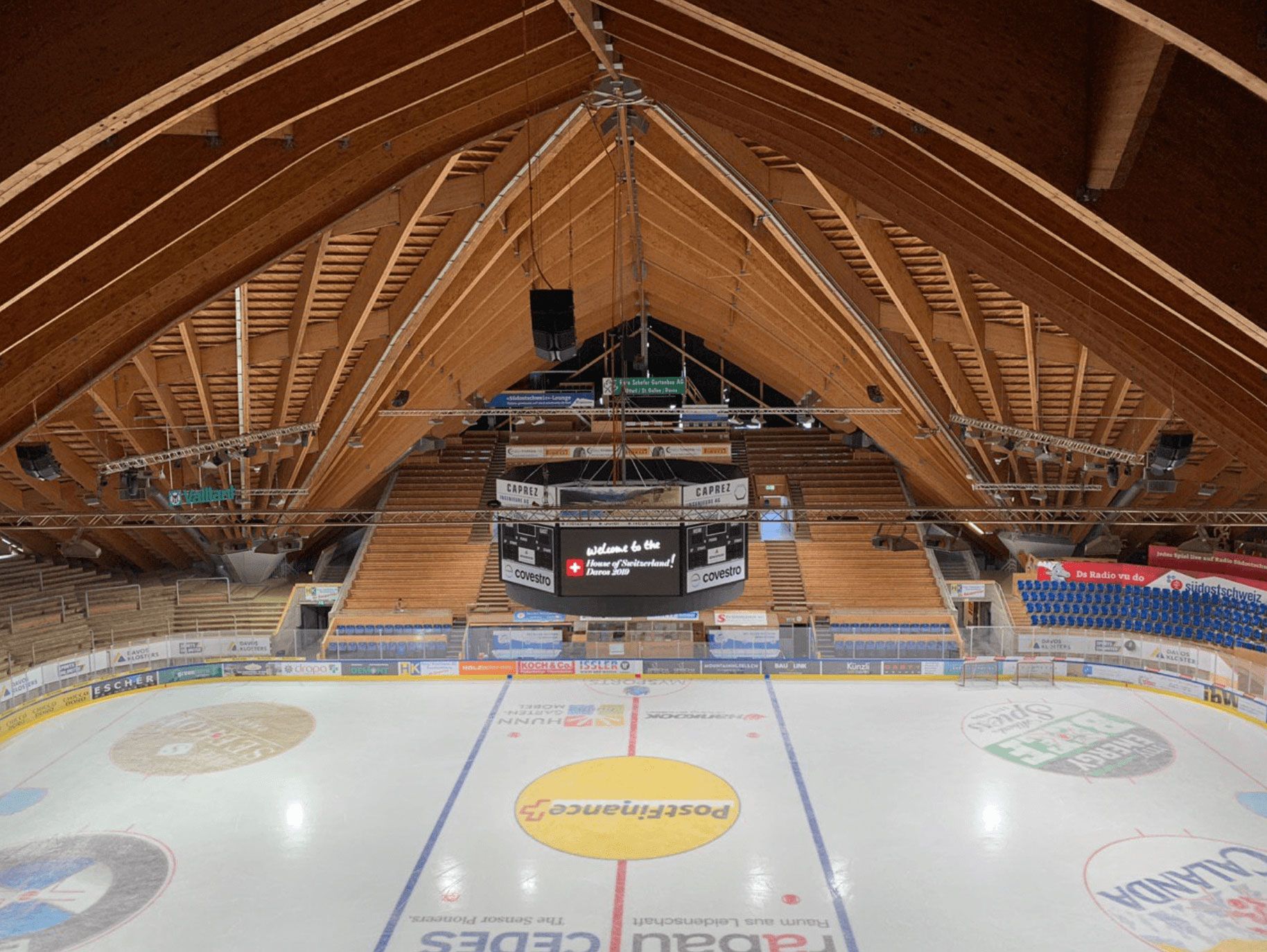
We celebrated the new year by revealing the new AKASHA Foundation website alongside the first metamorphosis post outlining how the AKASHA project will evolve from its early experiments to a non-profit foundation exploring the intersection of blockchain and collective intelligence.
🙌 2019 here we come! 🙌
We then followed through with a three-part series introducing interpersonal data and, before January ended, we also participated in three very meaningful events focusing on various aspects of distributed governance. A field of crucial importance, especially during this time as the crypto space is maturing.
This post covers the events we participated in through the lenses of two team members, Martin and Mihai.
We hope you enjoy it!
Berlin calling: DGOV & ARACON.ONE
Martin Etzrodt, Berlin, January 2019
Hello everyone! My name is Martin Etzrodt and I recently joined AKASHA to support the Team’s research efforts. I decided to join the project taking a side-step from my academic career after I realised the potential “self-sovereign” communication media like the AKASHA dapp can have to fundamentally accelerate the way we may organize to solve problems at a global scale. I will write more about my past and how it relates to my current work in a dedicated blogpost.
In this post I would like to reflect on the past days I spent in Berlin attending the Distributed governance (DGOV) community council and the Aracon.one conference. I would also like to express my deep appreciation, on behalf of the AKASHA Foundation, for the teams that organised these two events. It was an amazing experience filled with great people and bold ideas.
Delegates of all trades gathered in Berlin to discuss both the technical and human aspects that we need to get right to enable the kind of efficient, large-scale coordination of organizations that distributed technologies make possible.
While blockchains provide the backbone, coordination protocols that can be built on top of them, also referred to as decentralised autonomous organizations (DAOs), will enable distributed human cooperation and collaboration on a global scale.
There are still many challenges we need to solve. However, the foundations towards future types of organizations using platforms like Aragon and censorship resistant tools for communication such as AKASHA are being rolled out in 2019.
Aron Fischer (researcher at colony.io nicely pointed at their future utility during a panel at Aracon.one:
“The hope of course is that the tools evolve to the point where we can solve the huge global problems that we as a society have trouble addressing with our governmental and business institutions as they are today. These are coordination tools around common shared goals and there are really some big and shared goals that everyone would like to be working on, but doesn’t know how to start and I think the excitement of DAOs is that it is really easy to just start and then develop an internal dynamic momentum to grow things, to keep projects going forward without needing permission upfront."

DGOV council at work, Full Node Berlin, 26th of January 2019 (Photo: T Beutel).
In a positive scenario for “the future of work” we may be empowered to dedicate time to multiple projects we feel strongly about. We will be able to make valuable and meaningful contributions to those different projects instead of being confined to work on a single one in a traditional hierarchical form of business organization. We may transcend as individuals the need of attaining a specific role in society that likely does not encompass the full potential nor permit self-fulfilment of the individual.
As the technology evolves, we need to prevent undesirable dystopias though. The technology we create may be an ever more efficient means to enslave us. It is thus important to design governance not too rigidly - and allow the DAO code to evolve in a transparent manner - and let DAOs die, if necessary.
After all, it is crucial to define systems with a human-centric focus in mind. Therefore, I am especially thankful for the work of the DGOV organizers Tim Bansemer, Max Semenchuk, Anja Blaj and Aeon Hochberg, supported by an amazing facilitation team comprised of Phoebe Tickell, Lucas Tauil de Freitas, Francesca Pick (all Enspiral) and Ela Kagel (Supermarkt Berlin).
Their truly groundbreaking approach to organize a “council”, instead of a traditional conference setting, created a “safe space” in which I believe everyone of the 50 participants was able to have their opinion heard, learn from each other and then really go deep on complex topics in a truly interdisciplinary way to debate questions including identity, global democracy, “code as law” (see also attendant Vlad Zamfir’s article published just the day before the council) or the rise of the dystopian ”Mega DAO.”
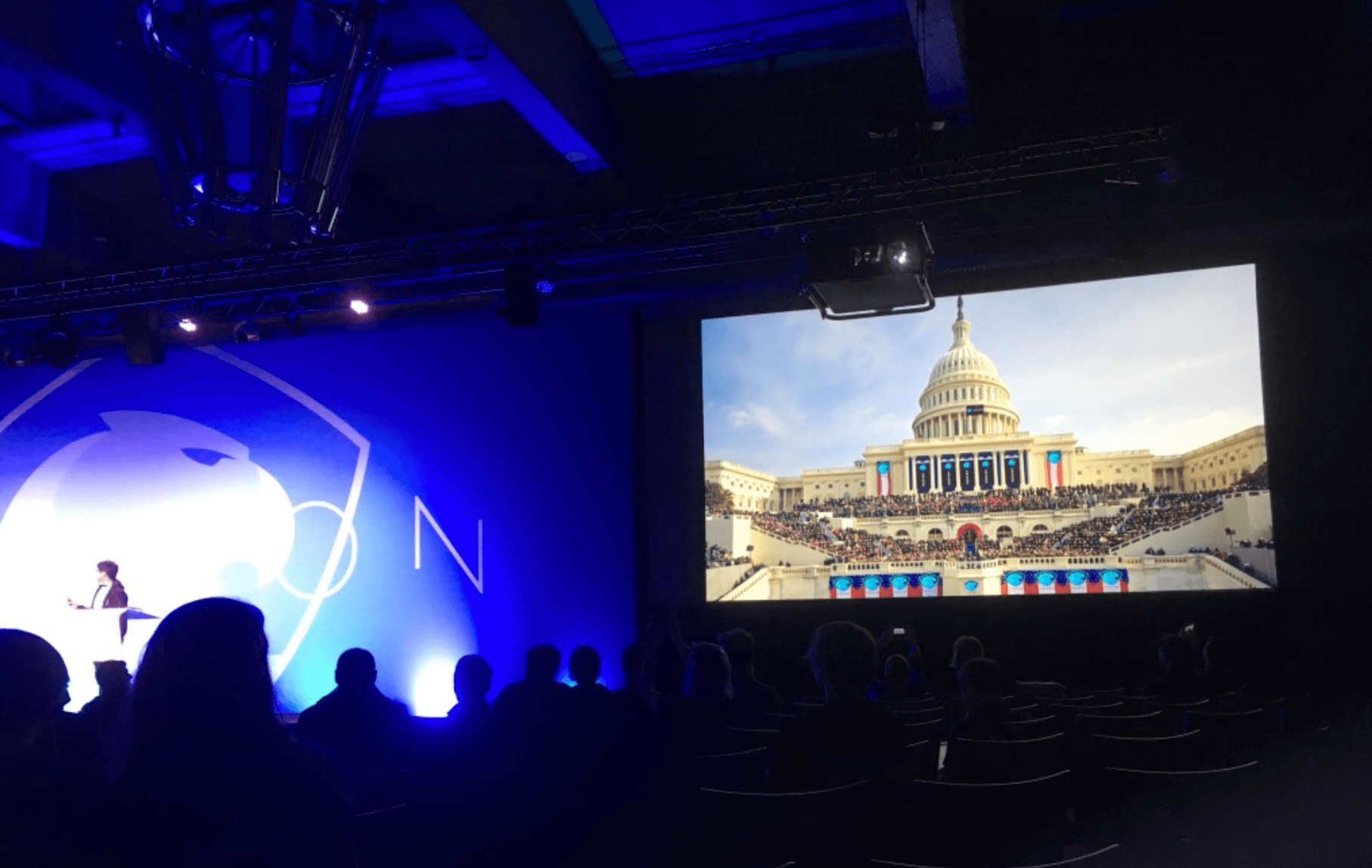
“Property for sale” - as the end of establishment and centralised form of governance nears, this property may be turned into a museum...
Philippe Honigman, one of the DGOV attendees, stated that on many topics the prevailing
"Lack of clarity […] is not necessarily a bad thing as there is diversity. It calls for creation.”
Thanks for capturing this sentence in a Tweet, Theo Beutel, researcher at the GIZ Blockchain Lab and Bundesblock, who introduced me to this wonderful community.
Looking ahead, 2019 will become an interesting “year of the DAO” as several platforms and experiments (such as Aragon evolve and the DutchX DAO will be launching.
As the 500+ participants of the first Aragon community conference return home to spread the word about the rise of DAOs, I am confident Aragon will contribute and I agree with Aragon executive director Stefano Bernardi who said: “I've never seen a concept with more killer apps than DAOs.”
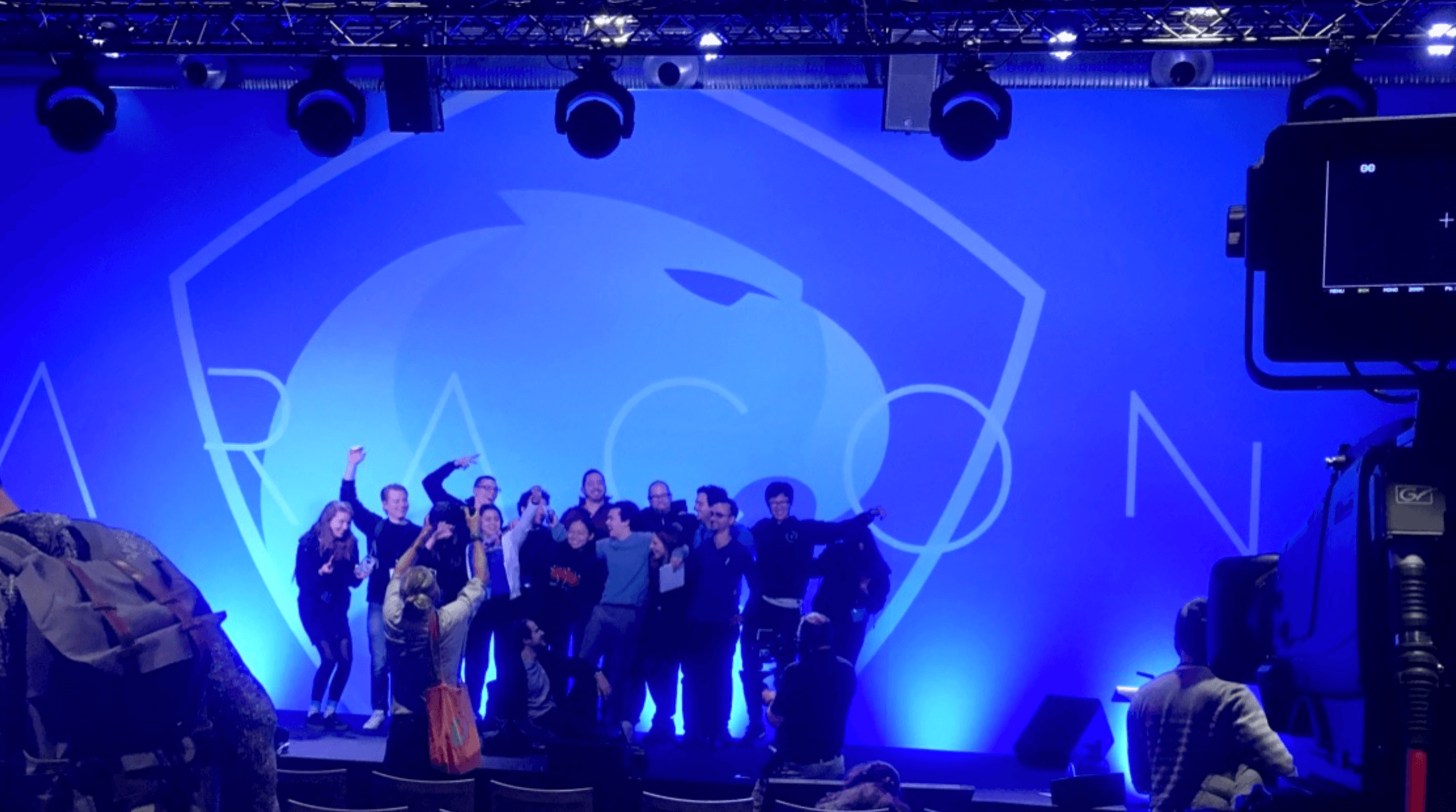
Well deserved cheering of Aracon.ONE team at the end of 2 days intense conferencing.
The other side of the coin: from Crypto Valley to Crypto Nation
Mihai Alisie, Davos, January 2019
During January, we participated in another great event this time in Davos, Switzerland, organized as part of the World Economic Forum 2019. The House of Switzerland hosted an invite-only, blockchain-focused event where Swiss government representatives and blockchain entrepreneurs had the opportunity to interact and gaze together into the future.
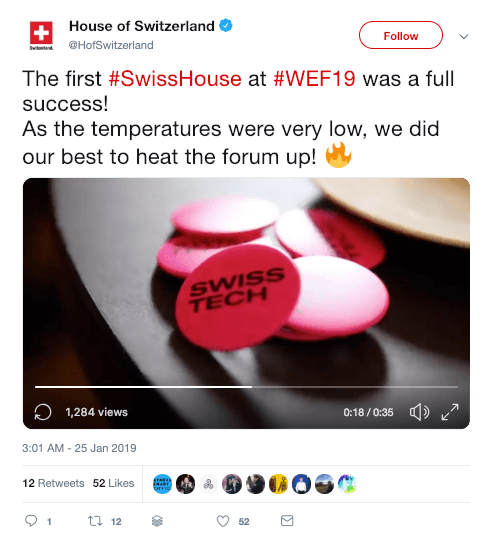
State Secretary for International Finance Matters (SIF,) Jörg Gasser opened the event outlining Switzerland’s overall blockchain strategy. To sum it up, Switzerland seeks to nurture a legal environment encouraging innovation, is open to new ideas and does not want to “box” blockchain in a particular regulatory category. Big applause from the audience.
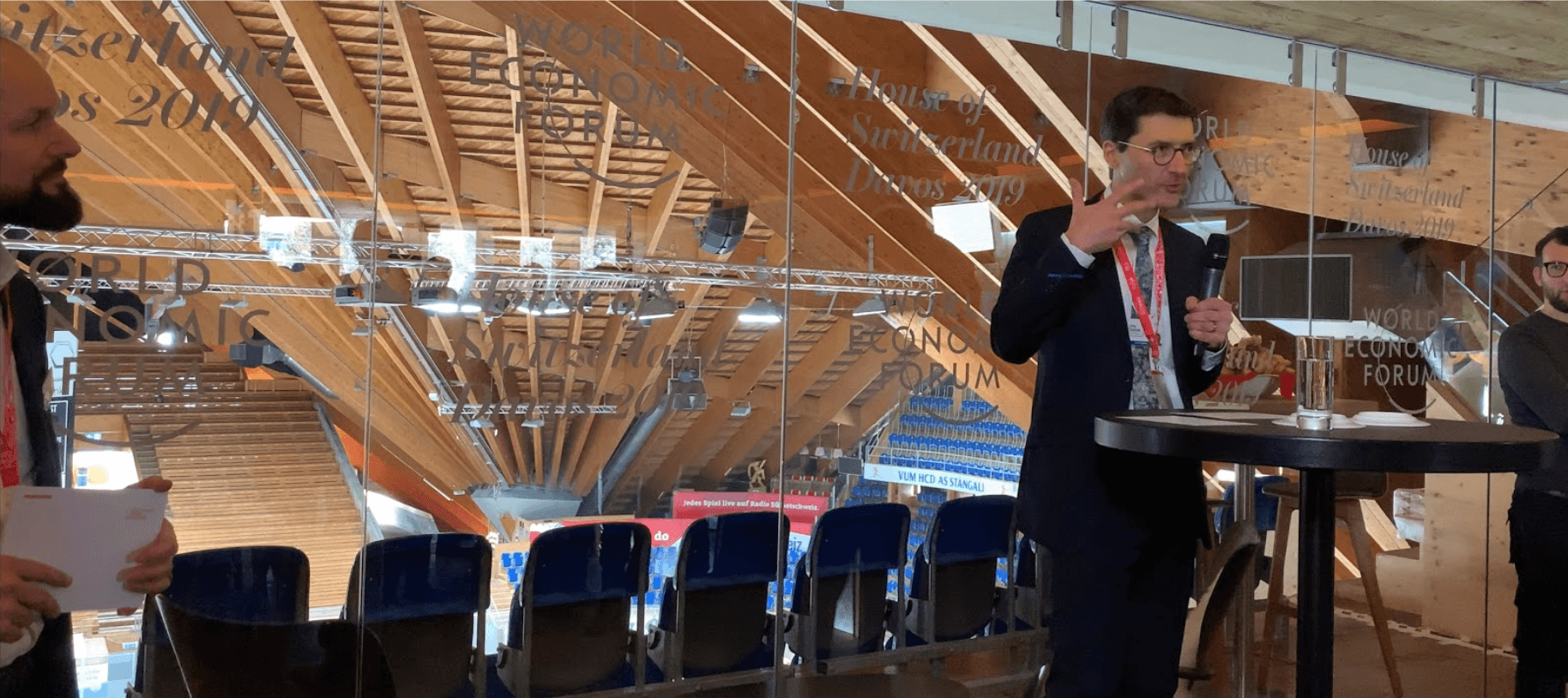
Jörg Gasser delivering his opening speech on Switzerland’s role in the new blockchain landscape.
For some context, SIF defends Switzerland's interests in international financial, tax and monetary matters. It promotes international competitiveness, the integrity of Switzerland's financial centre, access to foreign financial markets and the stability of the Swiss financial sector. In order to pursue its objectives, SIF performs the following functions:
- Representation of Switzerland's interests in financial and tax matters vis-à-vis foreign countries
- Safeguarding of Switzerland's interests in influential bodies such as the International Monetary Fund and the Financial Stability Board
- Participation in international efforts to combat financial crime and terrorism
- Analysis of financial market developments in Switzerland and abroad
- Further development of financial sector legislation
All in all, it was very encouraging to hear such a strong and positive statement from an official representative of the Swiss government - especially when the main focus of the governmental body represented handles such delicate matters in the bigger picture.
The stage has been set. My talk followed next.
Since I coined the name “Crypto Valley” during one of our first meetings with the Economic Development team of Zug in early 2014, I was invited to give a presentation on the genesis of Crypto Valley and some of the lessons learned in the process of founding Ethereum Switzerland. During this presentation I reflected on the first “blockchain decade” and how Crypto Valley emerged in this new landscape, concluding with an attempt to explore what the next blockchain decade might bring.
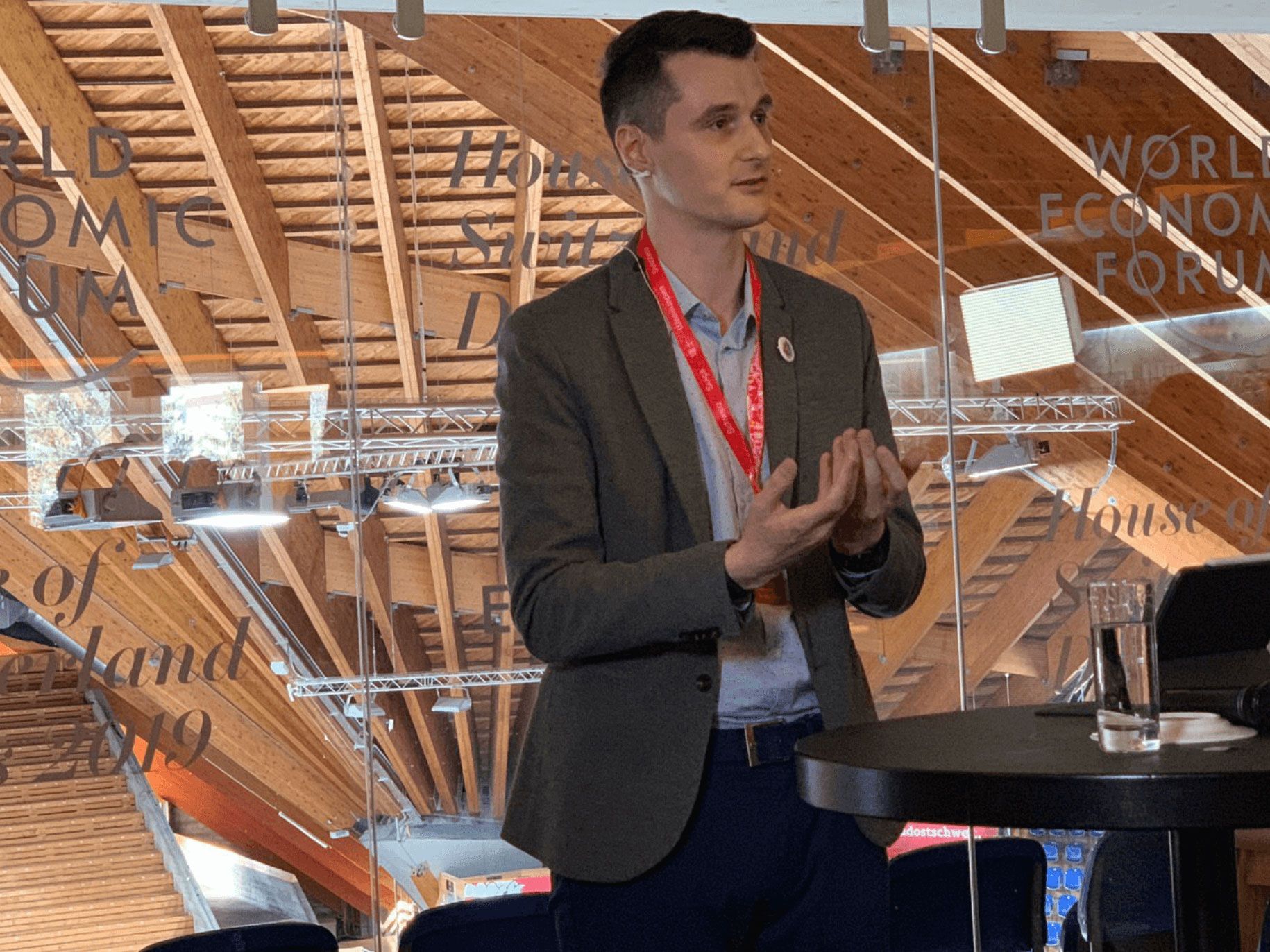
Mihai talking about the genesis of Crypto Valley and Crypto Nation.
The first part of the talk highlighted the progression from the initial decentralized digital currency experiment and single use-case blockchains introduced by Bitcoin over 10 years ago, to the idea of programmable digital currencies and general purpose blockchains introduced by Ethereum 5 years ago and how this process expanded our initial understanding from blockchain having a single purpose and use case, to blockchain being more similar to an app platform.
The second part of my talk aimed to explore some of the trends that formed in this first blockchain decade and how they will impact the next one. During this part I also made a connection between the original “Crypto Valley” idea and how it later evolved to “Crypto Nation” in the mind of Switzerland’s former President, Johann Schneider-Ammann.
I took this opportunity to point out how “nations” and “societies”, represent mental constructs built on top of a set of shared agreements between individuals (for example at a traffic stop we “know” that green light means “go”, red light means “stop”) and how the monetary part is just one of the many agreements that we humans, take for granted most of the times.
In this paradigm, “Crypto Nations” could deploy an explicit set of rules (constitution/protocol) with the institutions and companies becoming the equivalent of “apps” connected by the agreed-upon protocols through which citizens can interact, vote and collaborate via cryptographically secure mechanisms with increased efficiency, transparency and self-sovereignty.
This was an interesting moment in which the room seemed to take note how, even though we are surrounded by so much technology today, we are still operating as a society using the best ideas from ~200 years ago, with paper documents and hand signatures representing a glimpse into a different age and time.
The presentation concluded with a connection between the way web apps currently work via APIs and how, in the near future, we might see an equivalent emerging but for programmable organizing - with DAOs being just one early example of how this might unfold.
In this context, the next blockchain decade points to an increased importance of interoperability and standardization, alongside a shift of the main focus from the infrastructure layer to the applications layer and connecting the dots under a bigger umbrella of programmable social operating systems.
The takeaway points included how Switzerland is very well positioned to innovate in this areas considering how “decentralization” is already in its DNA combined with an understanding that blockchain technology can mean more than just cryptocurrency, followed by a call to continue pushing forward in search of solutions that can radically improve the current state of things beyond just “money.”
The presentation was well received, followed by questions and an intriguing invitation to expand these ideas in a book. The rest of the event was focused on how rather than if to become a “Crypto Nation” and the challenges ahead.
Some of the highlights included a need for more developers in the space, better education on the blockchain topic, and a call to “dare to think BIG” by Mathias Ruch, founder of the CryptoValley Labs & Board Member of the Swiss Blockchain Federation. Overall, we are very happy with the results and we left the event feeling optimistic about what the next blockchain decade will bring to Switzerland and the world at large.
In the bigger picture, if the Aracon and the DGOV events were pointing to how groups of all sizes from small communities to big nations will be transformed by this new technology, the House of Switzerland event was the other side of the coin, pointing out to the genesis of the first Crypto Nation(s) and a new playing field.
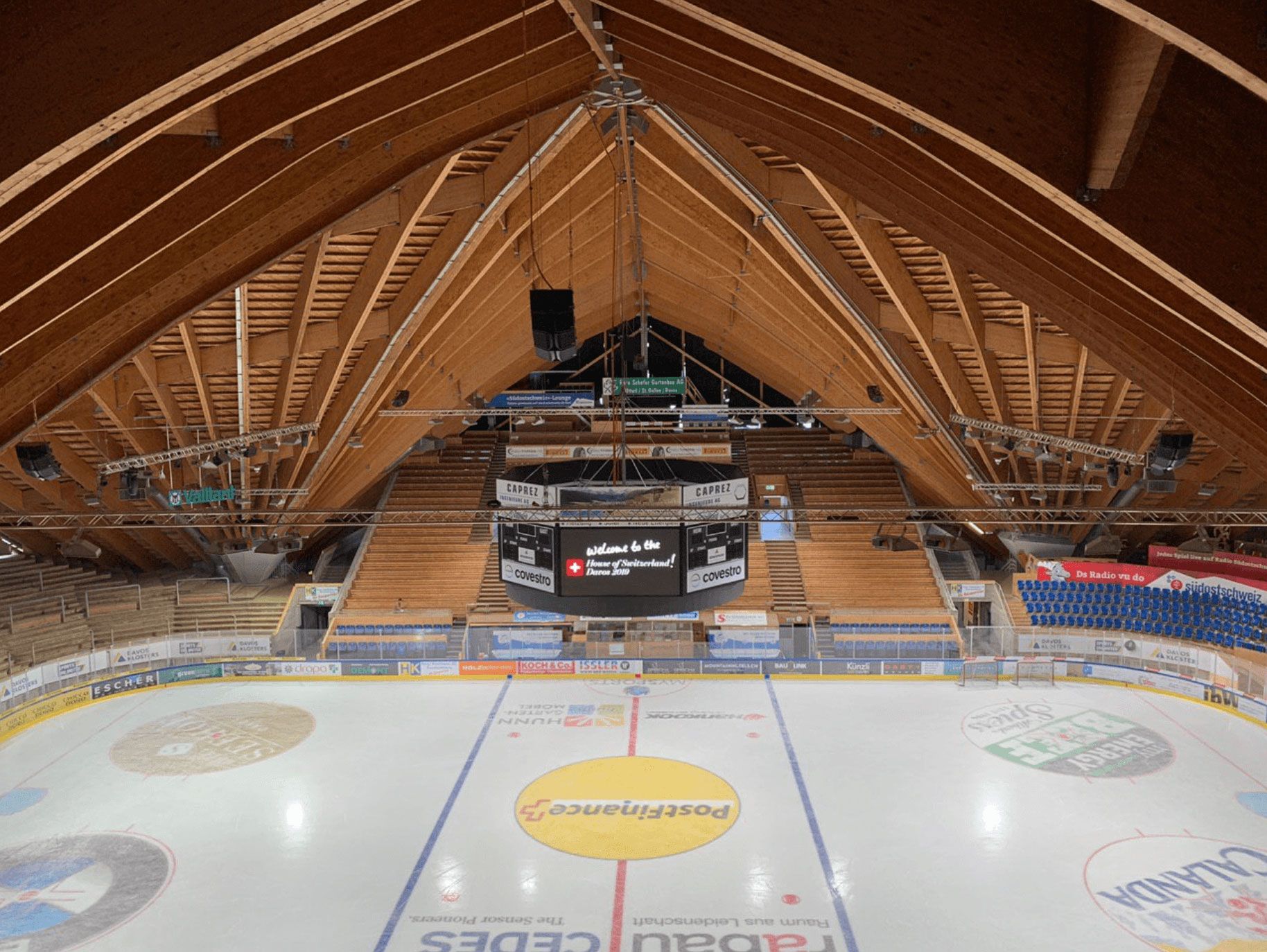
Let the games begin.

